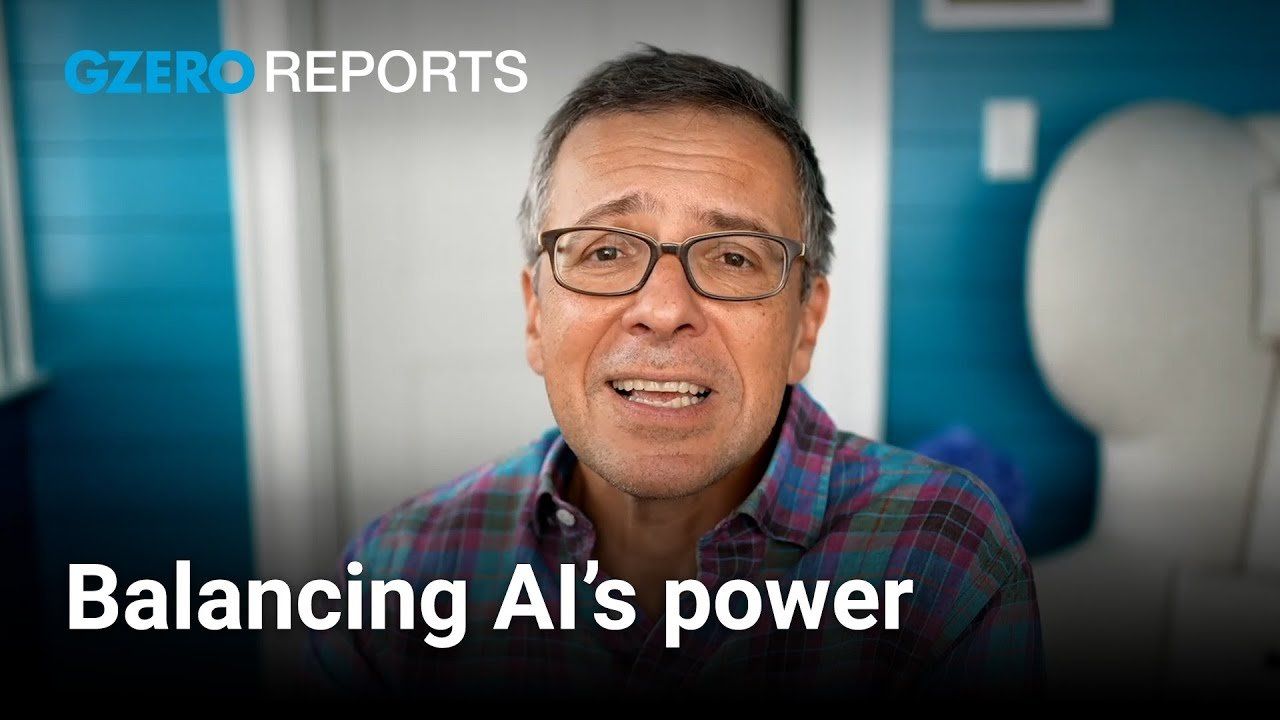
Can the world learn how to govern artificial intelligence before it’s too late?
According to Ian Bremmer, founder and president of GZERO Media and Eurasia Group, AI’s power paradox is that it’s both too powerful to easily govern, but too beneficial to outright ban. In a new video series on AI, Bremmer introduces the idea of “techno-prudentialism.” A mouthful of a word that will almost certainly come to define the way AI is governed, regulated, and controlled.
Techno-prudentialism is the idea that we need to identify and limit risks to global stability posed by AI without choking off innovation and the opportunities that come with it. It’s a tricky tightrope to walk, but it’s similar to how global finance is governed, known as macro-prudentialism. Despite conflict between, say, the US, China, and Europe, they all work together within institutions like the Bank of International Settlements, the IMF, and the Financial Stability Board to keep markets functioning. The do it because global finance is too important to allow it to break.
Techno-prudentialism applies that idea to the AI space. Bremmer lays out the case for a collective, international effort in AI governance, emphasizing the need for global institutions to address the many ways AI could challenge geopolitical stability. As the balance of power shifts towards technology companies in a techno-polar world [HYPERLINK TO TECHNO-POLAR VIDEO], Bremmer envisions these institutions creating a framework that balances AI’s power and benefits, while preventing it from inciting political instability on a global scale.